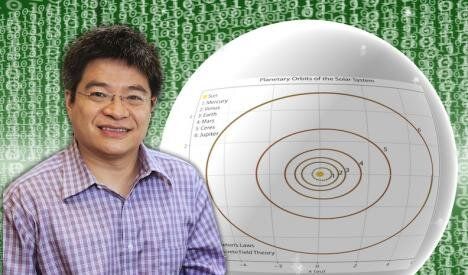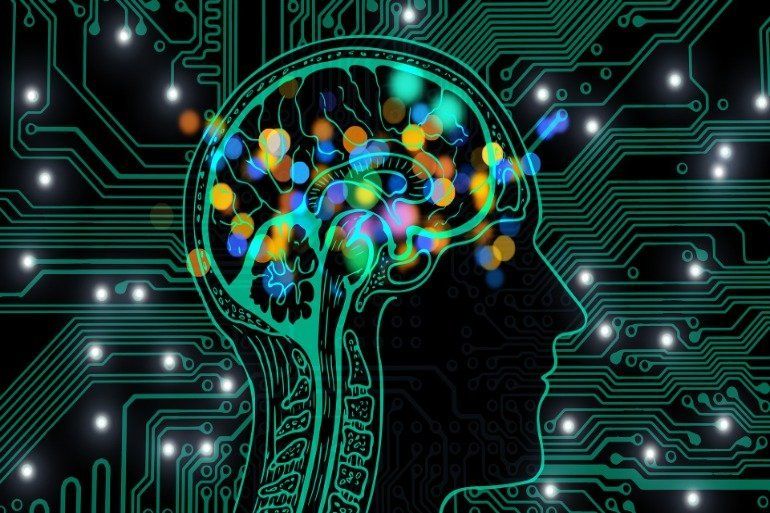The algorithm isn’t perfect, but it vastly outperforms past attempts.



Excellent hand and hand conversation between David Sinclair and Bracken Darrell. David is an expert in longevity and life extension, and Bracken is an experienced successful businessman, CEO of multinational Logitech.
The encounter took place on February 92021, during an online scientific symposium organized by the American Federation of Aging Research (AFAR).
The Symposium was launched under the following theme: “The Future is Now: Innovations in AI and Big Data for Healthspan and Longevity and it was a tribute to global geroscience visionary Sami Sagol.
If you’re familiar with the longevity field very likely you know who David Sinclair is, but for those who haven’t heard of Bracken Darrell before, he is an experienced and successful businessman, CEO of the Multinational Logitech.
Well known longevity leader Nir Barzilai acted as presenter and moderator of the conversation.

All governments across the globe are the same they don’t want a free flow of information that would challenge their authority and decisions that they think are good for us, maybe because they want to maintain law and order in society.
I am against the control of social media by the government and I am also against the algorithms which are designed to make people addicted to social media by showing the thing that appeals most to them for profit.
What are your opinions on this topic, how we can achieve the balance between these challenging aspects of social media use?
In case you missed it at Davos, Ursula von der Leyen’s call for safer social media. 📕.

A novel computer algorithm, or set of rules, that accurately predicts the orbits of planets in the solar system could be adapted to better predict and control the behavior of the plasma that fuels fusion facilities designed to harvest on Earth the fusion energy that powers the sun and stars.
The algorithm, devised by a scientist at the U.S. Department of Energy’s (DOE) Princeton Plasma Physics Laboratory (PPPL), applies machine learning, the form of artificial intelligence (AI) that learns from experience, to develop the predictions. “Usually in physics, you make observations, create a theory based on those observations, and then use that theory to predict new observations,” said PPPL physicist Hong Qin, author of a paper detailing the concept in Scientific Reports. “What I’m doing is replacing this process with a type of black box that can produce accurate predictions without using a traditional theory or law.”
Qin (pronounced Chin) created a computer program into which he fed data from past observations of the orbits of Mercury, Venus, Earth, Mars, Jupiter, and the dwarf planet Ceres. This program, along with an additional program known as a “serving algorithm,” then made accurate predictions of the orbits of other planets in the solar system without using Newton’s laws of motion and gravitation. “Essentially, I bypassed all the fundamental ingredients of physics. I go directly from data to data,” Qin said. “There is no law of physics in the middle.”

The toolset runs with Q-CTRL’s flagship BOULDER OPAL software for developers and R&D teams, automated closed-loop hardware optimization is also trained to obtain new experimental data/results from quantum computers while simultaneously running optimizations for algorithms. It can be used as a standalone tool or in tandem with a machine-learner online optimization package (M-LOOP) that manages quantum experiments autonomously.

Facebook says that political content currently constitutes only 6% of what people see on the platform. It will begin running experiments to reduce that amount for a small percentage of people in Canada, Brazil and Indonesia immediately, with tests in the U.S. in weeks to come.
The company said it isn’t removing political content but rather exploring ways to reduce the exposure for users who would prefer not to see it. In practice, that means Facebook will still allow users to post about politics and argue among friends, but its algorithms will de-prioritize those conversations and spread them less widely across the network.
Facebook says it is beginning to reduce how much political content users see on its main platform, potentially diminishing the role that the world’s largest social network plays in elections and civil discourse more broadly.



Circa 2013 o.o
Quantum entanglement, one of the odder aspects of quantum theory, links the properties of particles even when they are separated by large distances. When a property of one of a pair of entangled particles is measured, the other “immediately” settles down into a state compatible with that measurement. So how fast is “immediately”? According to research by Prof. Juan Yin and colleagues at the University of Science and Technology of China in Shanghai, the lower limit to the speed associated with entanglement dynamics – or “spooky action at a distance” – is at least 10000 times faster than light.
Despite playing a vital role in the development of quantum theory, Einstein felt philosophically at odds with its description of how the universe works. His famous quote that “God does not play dice” hints at his level of discomfort with the role of probability in quantum theory. He believed there exists another level of reality in which all of physics would be deterministic, and that quantum mechanics would turn out to be a description that emerges from the workings of that level – rather like a traffic jam emerges from the independent motions of a large number of cars.
In 1935 Einstein and his coworkers discovered quantum entanglement lurking in the equations of quantum mechanics, and realized its utter strangeness. This lead to the EPR paradox introduced by Einstein, Poldolsky and Rosen. The EPR paradox stated that the only ways of explaining the effects of quantum entanglement were to assume the universe is nonlocal, or that the true basis of physics is hidden (otherwise known as a hidden-variable theory). Nonlocality in this case means that events occurring to entangled objects are linked even when the events cannot communicate through spacetime, spacetime having the speed of light as a limiting velocity. Nonlocality is also known as spooky action at a distance (Einstein’s phrase).